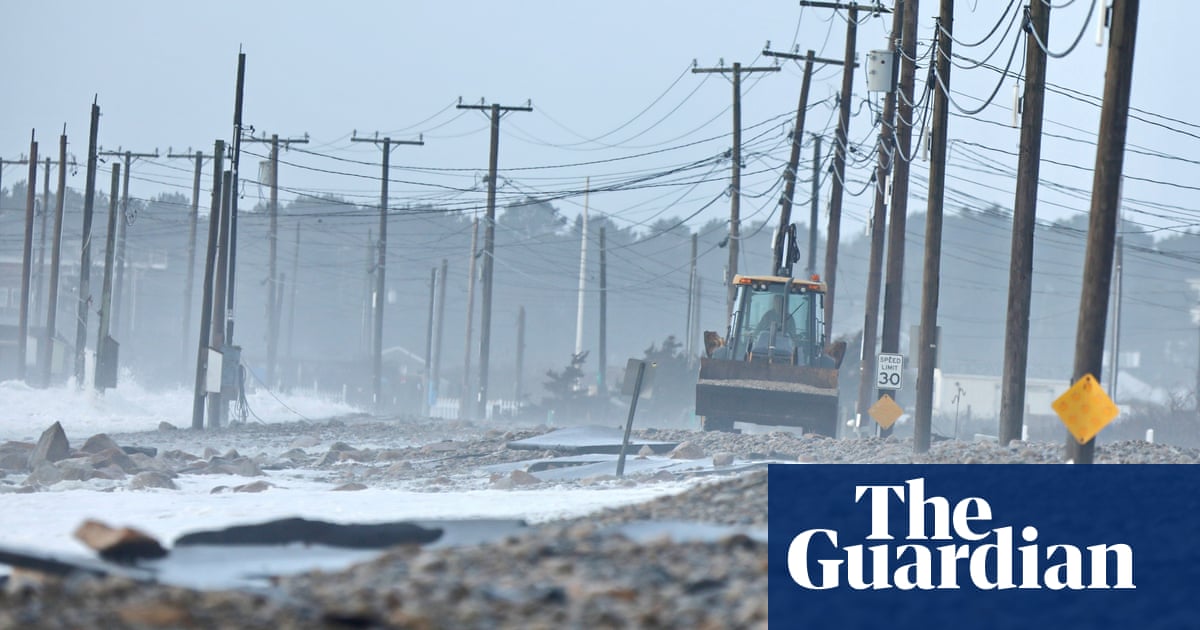Swept away: $500,000 sand dune built to protect US homes disappears in days | Massachusetts


A sand dune that cost homeowners on a Massachusetts beach more than half a million dollars to construct has washed away after just three days.
An affluent group of beachfront property owners in Salisbury, Massachusetts – a coastal town 35 miles north of Boston – are mourning the loss of their investment after a safety measure they took to protect their homes failed.
The dune, made of 15,000 tons of sand, was meant to keep dangerous tides from encroaching on to the shore and damaging beach houses. The dune had just been completed in February but was gone within 72 hours.
Salisbury Beach Citizens for Change, the volunteer organization behind the dune project, said on Facebook that even though the expensive protection mechanism was destroyed within days, “the sacrificial dunes did their job”, arguing that much more could have been destroyed were it not for the presence of the dune.
As oceans around the world get warmer, sea levels rise due to thermal expansion and weather patterns get more extreme, boosting coastal erosion.
Salisbury has suffered from rising sea levels, stronger winds and severe storms in recent months, including two in January, that have battered the area.
Digital meteorologist Jonathan Belles of the Weather Channel said: “From nor’easters to hurricanes, Salisbury gets touched by several large storms each year.”
“Their proximity to the Atlantic Ocean gives them a source of moisture and their northern latitude also firmly places them under the powerful jet stream during much of the year,” Belles said. “The town is also affected by coastal flooding pushed ashore by storms out in the Atlantic.”
Now, the homeowners have asked the state to step in and provide assistance.
after newsletter promotion
Local news outlet Fox59 reported that the Republican state senator Bruce Tarr was working to secure $1.5m in state funding to replenish the sand.
Tarr, noting that a more permanent seawall was not an option because hard structures like these are not allowed on Massachusetts beaches, said: “We’re managing a natural resource that protects a lot of interests.”
Source link




